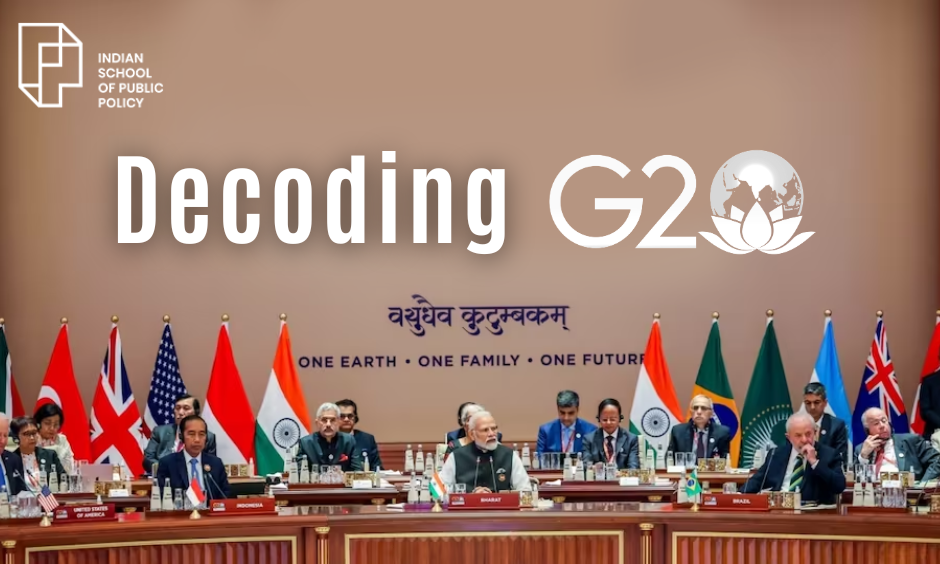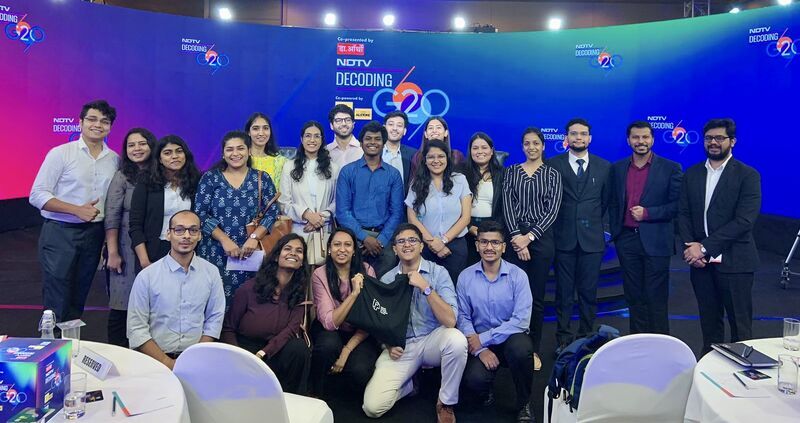
Decoding G-20: Key Insights and Analysis

“India’s sense of sincerity and responsibility propels the world’s attention and collaboration towards us,” stated the Honourable Minister of External Affairs, S. Jaishankar, during NDTV’s enlightening talk on “Decoding G20.” The insights from S. Jaishankar’s discourse shed light on the goals and objectives of the Narendra Modi-led government concerning India’s role within the G-20, especially within the complex and swiftly evolving global landscape. Mr. Jaishankar stressed the importance of finding a middle path in the face of growing complexity, shaping India’s G20 presidency to be distinctive, inclusive, and guided by the mantra of “One Family – One Future.” The mission is to get G-20 back to the G-20’s real business and encourage the forum to have a perspective beyond global politics, peace, and security by addressing serious issues such as food, energy security, economic growth, and green financing for nations.
S. Jaishankar effectively conveyed that India’s G20 leadership is more than a platform for voicing the concerns of its 1.2 billion citizens; it’s a platform to take charge and represent the expanding Global South with a sense of responsibility. His perspective on India’s increasingly pivotal role strongly resonates with us as enthusiasts of public policy. The COVID pandemic has revived the necessity of diversifying global supply chains, a concern extending beyond the pandemic’s immediate impact. The G20, functioning as an intergovernmental platform, undoubtedly creates a conducive stage for world leaders to negotiate and address these crucial issues, including the ramifications of climate change that disrupt economic productivity across the globe. It’s interesting that under India’s presidency, the grouping has also sought consultation with over 100 countries, which has not been done in the forum before.
Thus, S. Jaishankar’s reflections on Re-Globalization emerge as the need of the hour, aiming to establish equitable growth and prosperity worldwide. The concept of Re-globalization seeks to stimulate the aspect of a multi-polar world, and esteemed forums like BRICS and G20 act as foundational pillars for India’s trajectory toward the “Amrit Kaal.” With the upcoming G-20 summit, India will lay down its vision for a sustainable world. “The India way” now encompasses actively shaping decisions, moving beyond abstention. This juncture is pivotal for India to effectively engage with America, manage its relationship with China, cultivate ties with Europe, provide reassurances to Russia, involve Japan, engage neighboring countries, extend its influence in the region, and expand its traditional support networks. India’s shifting role is evident through its initiatives like “Vaccine Maithri,” where the nation’s contribution to the global vaccine supply has impressively reached 60%.
In conclusion, S. Jaishankar’s insights highlight the paramount importance of being hopeful about cultivating results through foreign policy. Trust is a cornerstone in international relations, and his emphasis on nurturing a positive perspective is of immense significance. As India assumes a more prominent global role, this optimistic approach will serve to solidify its standing as a reliable partner. Ultimately, cultivating trust through shared objectives and collaborative endeavors stands as the key to forging a brighter and more interconnected future on the global stage.


Thota Sai Manikanta
PDM Scholar, Class of 2024
Sai Manikanta Thota, our scholar of Post Graduate Programme in Public Policy, Design & Management brings forth a formidable background as a graduate from Ramjas College with a major in Political Science. Fueled by an unyielding passion for driving positive change, he possesses an unshakable commitment to unraveling complex societal issues and crafting effective solutions.
Equipped with a robust skill set in research, analysis, and communication, his ambition is to leave an indelible mark on society through evidence-based policymaking.

